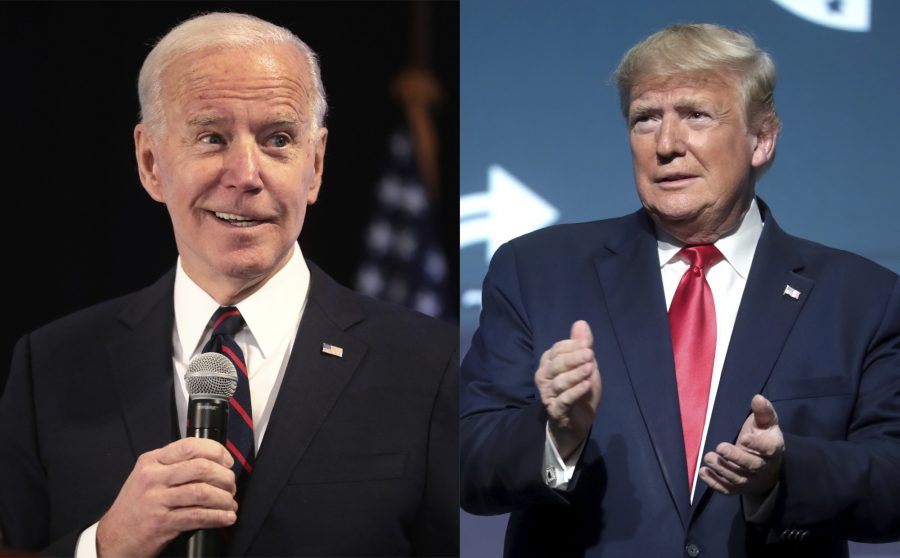Editor’s Notes: This story was produced as part of the Daily Wildcat’s “Election Guide” special print edition, published Wednesday, Oct. 21, and available on campus or online.
Current U.S. President Donald Trump and former Vice President Joe Biden have very different climate change and environmental policies.
For water pollution issues, the Trump administration has expressed that drinking water quality is a top priority. Trump has said, “America’s water infrastructure must be effectively managed and modernized to meet the needs of current and future generations of Americans.”
Trump plans on working towards this by formally establishing an interagency Water Subcabinet that will streamline the federal government’s approach to managing America’s water resources.
Biden’s take on water pollution issues is that he plans on creating policies to ensure that all communities have safe drinking water and pollution prevention of water in vulnerable communities. Biden’s plan for this is to take action against fossil fuel companies and other polluters.
While Trump has a plan for environmental policies, he doesn’t agree with climate change. Trump recently expressed skepticism for climate change while visiting California during the wildfires. However, Trump has plans for policies that reduce wildfire risk on millions of acres of federal lands. He also plans on having the United States join the One Trillion Trees Initiative to plant, conserve and restore trees on American soil and around the world.
RELATED: Taking a deeper dive into the presidential candidates’ healthcare policies
Biden’s policies for climate change align closely with the Green New Deal. Biden has stated that the Green New Deal is a crucial framework in making the necessary changes to combat climate change. According to Biden’s plan, he will ensure the U.S. achieves a 100% clean energy economy and reaches net-zero emissions no later than 2050. His policies to reach this goal include signing a series of new executive orders and demanding that Congress enacts legislation in the first year of his presidency. These policies will allow investment in clean energy and climate research.
The two have very different policies for drilling. Trump’s administration had a plan to allow oil and gas drilling on the coast of the Arctic National Wildlife Refuge. However, Trump recently expanded a ban on drilling sites off the Atlantic Ocean.
Biden promised on his campaign website to pursue a global moratorium on offshore drilling.
Trump’s other policies for environmental issues are signing the John D. Dingell Jr. Conservation, Management, and Recreation Act, which supports conservation and environmental stewardship. He also has policies that expand recreational access to public lands that support land and water conversation. Trump also signed the Great American Outdoors Act, which is conservation funding that helps improve national parks and public lands.
RELATED: President Trump’s COVID-19 treatment plan: What was it exactly?
During his presidency, Trump pulled out of the Paris Agreement to remove clean water protections. Trump also removed Obama-era clean water protections to protect rivers, streams and wetlands from pollution.
Biden’s other policies for environmental issues are to build a stronger, more resilient nation. His policies for this are to make infrastructure investments to rebuild the nation and to ensure that buildings, water, transportation and energy infrastructure can withstand the impacts of climate change. His other policy is to use the power of government to boost climate resilience efforts by developing regional climate resilience plans, in partnership with local universities and national labs, for local access to the most relevant science, data, information, tools and training.
Election Day is on Nov. 3, 2020, and these policies along with many others play an important role in the election.
Follow Jillian Bartsch on Twitter









